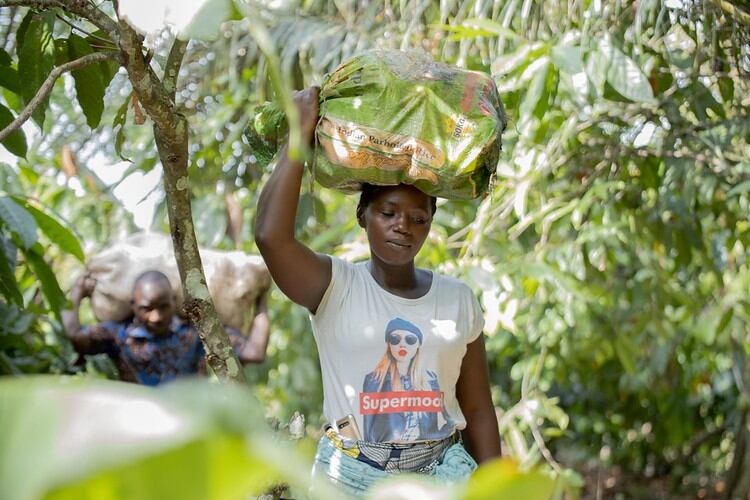Carbon offsetting is a controversial tool as companies progress their net zero ambitions.
Food giants Nestlé and Unilever stand accused of greenwashing over their climate commitments, for instance. A report from the NewClimate Institute investigated 25 global companies, including Nestlé and Unilever, and concluded their climate pledges mostly lack integrity. And much of that was down to the use of voluntary carbon offsetting – where companies can offset their emissions by buying credits from projects that reduce or avoid the release of climate-warming gasses elsewhere, like mass tree plantings or solar power farms.
Critics such as Greenpeace call the use of offsets a “get out of jail free card”. They believe there’s simply no time for offsets – trees can take 20 years to grow, after all, while the emissions are occurring today. There is also a fear that offsetting will take pressure off work to actually address emissions produced in the food chain.
Offset trading on the rise
The carbon offset market has nevertheless soared. In the fourth quarter of this year it officially reached a value of US$1 billion amid increased interest from both voluntary buyers and, increasingly, traders. Supporters – many predictably from the burgeoning carbon offset trading market – have leapt to the defence of the practice. In November last year for example the London Stock Exchange (LSE) announced it was developing a new Voluntary Carbon Market (VCM) solution to “accelerate the availability of financing for projects that will support a just transition to a low-carbon economy”.
At a recent media briefing on carbon prices Mikkel Larsen, Chief Executive Officer at Climate Impact X (CIX) declared: “There is no reason why any company should not be anything but proud by taking urgent actions in this way.”
CIX is a carbon credits platform recently set up by the government in Singapore to “enhance the transparency, integrity and quality of carbon credits”. Larsen said that the focus of CIX was to provide more education and feedback to companies using voluntary credits about the initiatives taking place on the ground delivering real impact in order to bring more trust and stability into this market. “CIX is initially focused on natural climate solutions which involve the protection and restoration of natural ecosystems like forests and mangroves. We place a strong emphasis on quality, working with partners and harnessing technology to evaluate and monitor these projects. This provides reassurance to our community of buyers and supports our trusted suppliers in earning fair value for their projects.”
The number of companies that have joined the UN's Race to Zero – the commitment unveiled at COP26 to achieve net zero carbon emissions by 2050 at the latest – demonstrates a genuine commitment from these organisations to reduce their climate impact, believes Director of Communications at the UN Framework Convention on Climate Change, Nick Nuttall.
“Many of those companies believe that it's really important to manage down your emissions from your operations and your products and your supply chains,” he said. “But we live in a world, as we all know, that's not carbon neutral yet. So they see that they need the voluntary carbon markets to offset the emissions.”
Thanks to the offset projects, meanwhile, families in Nigeria get clean, safe cooking equipment and smallholder farmers in Brazil enjoy protected lands. “We know that to decarbonize the world, we need to reward people doing the right thing,” continued Nuttall. “And we need to also get money to the developing countries, including indigenous peoples and local communities. That's going to be key.”
Many trust, therefore, that the voluntary carbon market has come of age. “It has a really important part to play along with other financial flows in helping society achieve its sustainability aims, and its climate change targets,” said Nuttall.
Ed Rumsey, Managing Partner at Permian Global, an organisation working for the protection and recovery of tropical forests, added he believes nature-based carbon offsets are a credible part of any mitigation strategy. “We strongly believe that voluntary markets provide the private sector the opportunity to support both corporations, but also governments in meeting global commitments to combating disastrous climate change,” he said.
Prices are only going one way
How much is this market potentially worth? Estimates vary widely from $5 billion to as much as $100 billion in the next ten years.
According to Permian Global, new issuances were worth the equivalent of around 365 million tonnes of Co2 last year, a rise of 65% year on year. “Our prices seem to have stabilized around $15 a ton,” said Rumsey. “But that's not to say they're not going to keep moving forward. I think demand is going to keep growing. Supply is scarce. And there's a significant lag in terms of new tons. So where's price going? I think it's only going one way.”
Could rising prices make it unaffordable for some companies to offset? Yes, but that might not be a bad thing from an environmental perspective. There is, for example, significant evidence, revealed Rumsey, to suggest that those companies that use offsets have or at least plan some form of sort of climate mitigation strategy and usually have a decarbonisation strategy.
Higher prices therefore will likely make it more cost effective for companies to invest in decarbonizing their own operations instead of relying on offsets: something that Rumsey’s organisation at least is keen to achieve.
Win-wins
Others argue higher prices may serve to boost the financial sustainability of the carbon offset industry by benefiting all those involved, from profits for the traders and incomes for those carrying out the projects on the ground.
“Carbon markets offer something unique that other types of finances do not,” claimed Larsen. “They generate income, not just finance. Without the income that is generated from the carbon credit, you won't make the some of these nature-based projects profitable, no matter how much finance they get in there.”
He supports the use of both carbon credits and carbon removals. Further, a greater mix of projects, with a focus on both carbon removal initiatives and projects aiming to preserve and restore natural carbon sinks, is needed. This will boost both demand and incomes on the ground and also the opportunities to slow or reduce the effects of climate change.
“High quality nature-based solutions make sense from a portfolio point of view,” Larsen said. “We need to preserve carbon sinks and we need to remove things. If we remove only but we don't preserve, we won't solve climate change long term.”





